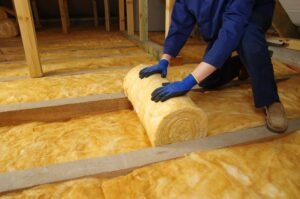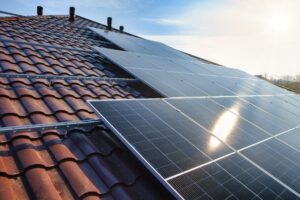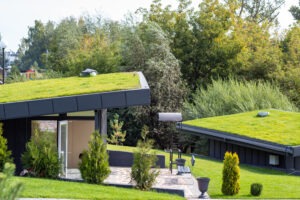- Home
- About Us
- Member Profiles
- Help and Advice
arrow_drop_down
- Conciliation
arrow_drop_down
- Guild magazine
Eco-friendly home improvements
 Are you looking for ideas to become an everyday eco-warrior? The following environmentally friendly home improvement suggestions – ranging from the very easy to the slightly-more-expensive – will not only help you do your bit to protect our planet, but in the long run they could save you money and hassle, as well…
Are you looking for ideas to become an everyday eco-warrior? The following environmentally friendly home improvement suggestions – ranging from the very easy to the slightly-more-expensive – will not only help you do your bit to protect our planet, but in the long run they could save you money and hassle, as well…
Why you should consider switching to a renewable electricity source
You should think of installing a renewable electricity source as a long-term investment: the initial outlay can be expensive, but over time, as fossil fuel and energy prices rise, it will save you money. These are some of the most common options:
- Installing solar panels on your home. The electricity they generate can be used to power your own home or exported back to the grid, saving you money and helping the world transition to clean energy sources. However, their effectiveness will depend on factors like size and whereabouts you install them on your property. You should consult a solar panel specialist to get advice on what kind of solar panels best suit your needs.
- Install a low carbon heating system, like an air source or ground source heat pump or a biomass boiler. The installation process can incur substantial costs, but the government’s Boiler Upgrade Scheme (BUS), running from 2022-2025, can provide you with a grant to help you afford the initial outlay. Be warned though, if you already have a modern gas boiler, a biomass boiler – while more eco-friendly in terms of carbon emissions – is likely to cost you more to run.
 What are some other sustainable eco-friendly home improvements?
What are some other sustainable eco-friendly home improvements?
One of the best ways to cut your energy bills is to have a well-insulated house. Having insulation fitted can cost a fair bit, but with the reduced heat loss it brings, you’ll start to save money on heating immediately. There are even environmentally friendly types of green insulation to choose from, produced with recycled or natural materials like cellulose or sheep’s wool.
Smart heating controls can also improve your home’s energy efficiency. Installing a smart thermostat connected to your boiler is both eco-friendly and cost effective. It’ll help to maintain your home at a steady temperature and limit the number of times that your boiler needs to fire up.
Thirdly, installing double glazing throughout all the windows in your property will make a big difference to your home’s rate of heat loss. It’s worth paying more for A-rated windows to see the best results.
Why not install a green roof as an eco-friendly upgrade?

You might be wondering what a green roof is, or what the environmental benefits are. The clue is in the name: it’s a roof that is either partially or completely covered in vegetation. Green roofs on private homes function like mini ecosystems, providing a natural habitat for plants, insects and animals and helping to increase biodiversity in urbanised areas. What’s more, they act as thermal insulation, bringing down the cost of your energy bills.
They also improve local air quality, replacing carbon dioxide in the atmosphere with oxygen, as well as cooling the air, which serves to reduce the ‘urban heat island effect’. And
, by soaking up rainfall, the vegetation on a green roof helps to counteract the risk of flooding during bad weather. An added bonus: if your green roof can be used as a recreational rooftop garden, it will also increase the overall value of your property.
Of course, there are questions about the installation and maintenance of a green roof that need to be addressed before you commit to attaching one to your property. They can be expensive to set up, especially since you may need to install additional structural support in your home to handle the increased weight on the roof. Drainage and irrigation issues can also occur at a later point in your green roof’s life, which may require additional work to fix.
Smaller everyday actions that can reduce your household carbon footprint
- Consider replacing the lightbulbs in your home with energy efficient LED bulbs.
- Always ensure the washing machine or dishwasher is full before you run it. You could also try running the washing machine on a lower temperature.
- Turn off the lights when you leave the room. Lighting an empty room is wasteful and pointless. Similarly, turn off electrical appliances when you’re not using them to save on energy expenditure.
- Only fill a kettle with the exact amount of water you need. There’s no point in wasting extra energy boiling a kettle for five cups of tea if you’re only making one!
- Buy and use eco-friendly toiletry and cleaning products for use around the home. Try to avoid plastics that contribute to pollution in our rivers and oceans.
- Instead of purchasing brand new furniture, buy second-hand or recycled furniture. By giving someone else’s furniture a new home, you’re helping to cut down on waste.
- Rather than throwing away your food scraps, put them in a compost bin and soon you’ll have a natural – and free! – source of compost for use in your garden or allotment.
- Replace your toilet and showerhead with low-flow models to cut down on water usage.
Why it’s important to ask the experts about eco-friendly home improvements
If you’re planning on overhauling and enhancing your home’s environmentally friendly features, you’ll probably want to seek the advice and assistance of experienced and knowledgeable tradespeople. You might want to consider:
- Hiring local tradespeople. If they don’t have to travel great distances to work in your home, they’re using less fuel and contributing less to global warming and pollution. Find local Guild accredited tradespeople near you here!
- Asking your local tradespeople what the most eco-friendly options are for any potential home improvement project. They’ll be able to offer informed, up-to-date advice tailored to your circumstances and requirements.
However ambitious or modest your plans for eco-friendly home improvement, we hope that this article has given you some ideas and the confidence to take things forward.
You can find out more about environmentally friendly household upgrades here: https://www.forbes.com/home-improvement/home/eco-friendly-home-improvements/

